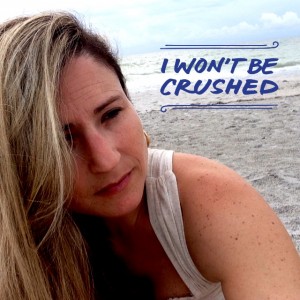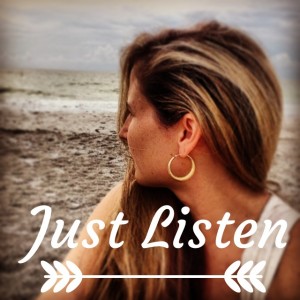 Do you find yourself interrupting people? Do you really hear someone when they’re telling you something or are you just waiting for them to finish their sentence so you can spit out what’s in your head before you lose it? In literally every situation, listening to the person you’re communicating with can change your life by improving every relationship you have, even with people you really don’t like! In an argument, there’s no quicker way to diffuse it than to go silent and just listen to them. It actually forces them to listen to themselves. If they’re being unreasonable, it gives them the chance to realize it. Or it gives them the chance to explain their point better without your distraction. Either way, the argument will be resolved quicker and friendlier! What about the awful and sometimes awkward situation where you’re talking to someone who is very sad or dealing with some kind of loss? Many of us do not know what to say to make them feel better but here is the irony – not saying anything at all and just letting them talk it out makes them feel better. Just listen. I think it is obvious that listening is important in our romantic relationships and there are many, many articles and books written on that subject! Not just hearing someone but actually listening can make you a hero in someone’s eyes. There’s no greater compliment to me than someone telling me I’m a great listener! If someone has come to you to talk about a problem they’re having and need help, they usually just need to talk it out and will find their own solution. Just listen. When someone has an opinion that you don’t agree with, listen to them and continue to listen to them. You may never change your mind but at least you are armed with more knowledge from the other point of view, which in turn gives you more intelligence to use for debate. You have to keep an open mind and know that NO ideal is ever absolute. There are pros and cons to everything. Listening to all sides makes you a well rounded and intelligent person. You will learn more than you ever wanted to know but it will change your life. Try the “Just Listen” challenge for one day and see how it opens your world.
Do you find yourself interrupting people? Do you really hear someone when they’re telling you something or are you just waiting for them to finish their sentence so you can spit out what’s in your head before you lose it? In literally every situation, listening to the person you’re communicating with can change your life by improving every relationship you have, even with people you really don’t like! In an argument, there’s no quicker way to diffuse it than to go silent and just listen to them. It actually forces them to listen to themselves. If they’re being unreasonable, it gives them the chance to realize it. Or it gives them the chance to explain their point better without your distraction. Either way, the argument will be resolved quicker and friendlier! What about the awful and sometimes awkward situation where you’re talking to someone who is very sad or dealing with some kind of loss? Many of us do not know what to say to make them feel better but here is the irony – not saying anything at all and just letting them talk it out makes them feel better. Just listen. I think it is obvious that listening is important in our romantic relationships and there are many, many articles and books written on that subject! Not just hearing someone but actually listening can make you a hero in someone’s eyes. There’s no greater compliment to me than someone telling me I’m a great listener! If someone has come to you to talk about a problem they’re having and need help, they usually just need to talk it out and will find their own solution. Just listen. When someone has an opinion that you don’t agree with, listen to them and continue to listen to them. You may never change your mind but at least you are armed with more knowledge from the other point of view, which in turn gives you more intelligence to use for debate. You have to keep an open mind and know that NO ideal is ever absolute. There are pros and cons to everything. Listening to all sides makes you a well rounded and intelligent person. You will learn more than you ever wanted to know but it will change your life. Try the “Just Listen” challenge for one day and see how it opens your world.
For the best interest of the child… in ALL situations?
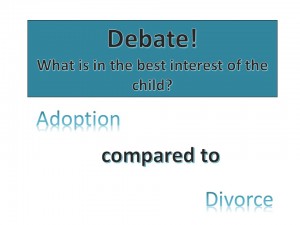 I hear the ones that don’t believe that adoption is in the best interest of the child and in fact, scoff the idea that others think it is. I read their opinions that the child in most every situation is better off with the birth parent, or at the very least, the birth family even though the child might end up in a dangerous part of town and/or struggle their whole life. I’m not saying that’s right or wrong at all but it gets me thinking about other situations that happen for the “best interest of the child”. Take divorce, for example. There are many people that say that two happy homes are better than one unhappy home. People say that it’s better for the child because the unstable home is unhealthy and could cause irreparable emotional trauma. Do you think that’s true that sometimes divorce can be better for the child? And if you do, then wouldn’t that same thought process apply to adoption? A birth mother might believe that their unstable home and life would be unhealthy for their child. On the flip side (because I like to look at all sides) is the pain of being adopted more unhealthy than growing up in an unstable and possibly unhappy home? Is being split from one parent in a divorce more unhealthy than the emotional trauma of an unstable and unhappy home? Does it depend on the degree of the situation? What if the father physically beats the mother and children? I would think at that point, it is obviously better for the child to be separated from the father. Likewise, if the birth mother is a drug addict who would physically abuse their child then they are better off with someone else. The problem is that an adoptee (or even a child from a divorce) doesn’t know the other side of what could’ve been. The not knowing is a huge source of pain. What do you all think? Are these just two completely different situations that’s silly to compare? Is it hypocritical if you think of one situation one way and the other situation in another way? Does this make you think? Please tell me your thoughts.
I hear the ones that don’t believe that adoption is in the best interest of the child and in fact, scoff the idea that others think it is. I read their opinions that the child in most every situation is better off with the birth parent, or at the very least, the birth family even though the child might end up in a dangerous part of town and/or struggle their whole life. I’m not saying that’s right or wrong at all but it gets me thinking about other situations that happen for the “best interest of the child”. Take divorce, for example. There are many people that say that two happy homes are better than one unhappy home. People say that it’s better for the child because the unstable home is unhealthy and could cause irreparable emotional trauma. Do you think that’s true that sometimes divorce can be better for the child? And if you do, then wouldn’t that same thought process apply to adoption? A birth mother might believe that their unstable home and life would be unhealthy for their child. On the flip side (because I like to look at all sides) is the pain of being adopted more unhealthy than growing up in an unstable and possibly unhappy home? Is being split from one parent in a divorce more unhealthy than the emotional trauma of an unstable and unhappy home? Does it depend on the degree of the situation? What if the father physically beats the mother and children? I would think at that point, it is obviously better for the child to be separated from the father. Likewise, if the birth mother is a drug addict who would physically abuse their child then they are better off with someone else. The problem is that an adoptee (or even a child from a divorce) doesn’t know the other side of what could’ve been. The not knowing is a huge source of pain. What do you all think? Are these just two completely different situations that’s silly to compare? Is it hypocritical if you think of one situation one way and the other situation in another way? Does this make you think? Please tell me your thoughts.
Book reviews!
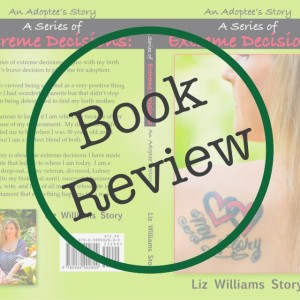 Feedback is very important to me. I appreciate reading your reviews of my book and thought I’d share a few with you. Thank you very much to the reviewers who wrote these. If you’d like to leave a review, click on the review page and fill out the form! Thank you!
Feedback is very important to me. I appreciate reading your reviews of my book and thought I’d share a few with you. Thank you very much to the reviewers who wrote these. If you’d like to leave a review, click on the review page and fill out the form! Thank you!
But they don’t mean to be incredibly selfish!
 For a lot of adoptees, we hear adoptive parents and/or birth parents tell us how badly they felt about the adoption and the adoptee is like…. how bad YOU felt?? What about what I was going through? And then we wonder, how could they be so incredibly selfish?! To us, it should be obvious that we are the ones that this happened to and we had no choice in the matter. We didn’t have a say in the decision to place for adoption and we didn’t get to choose our parents like they got to “choose” us. So when we hear them talk about how hard it was for them we get really offended. But here’s a different way to look at it that may help you to deal with it. Most of the time, they are telling you that because they actually think it will make you feel better to know that it wasn’t easy for them. I know that sounds crazy but think about it. When you have a best friend or sister who you helped go through a terrible relationship and subsequent horrible break up, maybe you tell them how bad it was for you, too, or all the bad that you saw in hopes that they will understand that you can relate to their pain and you even hope it shows them how much better off they are without that person. They don’t always intend to be selfish, sometimes they’re trying to let you know that they related to your pain in the situation or they think they are giving you some relief by letting you know they didn’t want to give you up. I’m not saying that all people aren’t trying to be selfish but I’m saying think about where it’s coming from. Are they simply trying to relate to you? We’re the only ones that know no one can relate to it, unless they’re an adoptee too. I think we can all agree that the general public does not know the full effects that adoption has had on adoptees. Although there are so many adults adoptees out there now, our voices aren’t typically heard… yet. Some people are just ignorant to other’s feelings and we have to educate them. And we, as adoptees, have to remember that there is NO situation that is “all about you”. We also have to consider other’s feelings, just as we expect them to consider ours. Let’s be the bigger person, educate, and in the process, heal.
For a lot of adoptees, we hear adoptive parents and/or birth parents tell us how badly they felt about the adoption and the adoptee is like…. how bad YOU felt?? What about what I was going through? And then we wonder, how could they be so incredibly selfish?! To us, it should be obvious that we are the ones that this happened to and we had no choice in the matter. We didn’t have a say in the decision to place for adoption and we didn’t get to choose our parents like they got to “choose” us. So when we hear them talk about how hard it was for them we get really offended. But here’s a different way to look at it that may help you to deal with it. Most of the time, they are telling you that because they actually think it will make you feel better to know that it wasn’t easy for them. I know that sounds crazy but think about it. When you have a best friend or sister who you helped go through a terrible relationship and subsequent horrible break up, maybe you tell them how bad it was for you, too, or all the bad that you saw in hopes that they will understand that you can relate to their pain and you even hope it shows them how much better off they are without that person. They don’t always intend to be selfish, sometimes they’re trying to let you know that they related to your pain in the situation or they think they are giving you some relief by letting you know they didn’t want to give you up. I’m not saying that all people aren’t trying to be selfish but I’m saying think about where it’s coming from. Are they simply trying to relate to you? We’re the only ones that know no one can relate to it, unless they’re an adoptee too. I think we can all agree that the general public does not know the full effects that adoption has had on adoptees. Although there are so many adults adoptees out there now, our voices aren’t typically heard… yet. Some people are just ignorant to other’s feelings and we have to educate them. And we, as adoptees, have to remember that there is NO situation that is “all about you”. We also have to consider other’s feelings, just as we expect them to consider ours. Let’s be the bigger person, educate, and in the process, heal.
How many different ways can we NOT raise the humans we create?
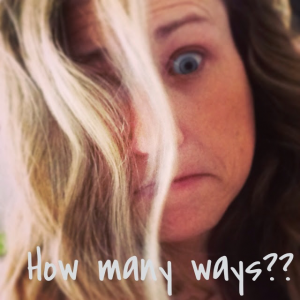 I’m a bit fascinated by all the different ways a person can end up with a non-biological family. I was thinking about how studies typically only cover one kind of adoptee or another or birth parents or adoptive parents… but I haven’t seen a study that covers all the different people affected by the different ways that a child is relinquished. So how many different ways are there to affect a human in this way? There’s the typical well-known adoption, foster care, cryogenics, surrogacy… am I missing anything? What about those that were tricked, or switches at birth when you don’t even know that you’re raising a non-biological child? Ok, the last one there doesn’t happen often nor is it deliberate, like the others. So let’s go ahead and discount that, however, think about all of the other ways. That is a lot of different people affected in lots of different ways. Is there a study out there that takes every perspective into consideration and spits out an average feeling of the children, the bio parents and non bio parents? I hope you all know by now that I believe in adoption and I also believe in surrogacy and cryogenics… (wait for it)… BUT, I also believe that bio and non-bio parents absolutely have to know what to expect when their children get older. This is the biggest foul in my mind (not counting the adoption industry fouls). Where are the resources out there for these bio and non-bio parents to learn about the consequences of what they’re doing, how to let their kids know the truth and how to deal with their feeling about it. Am I missing something? Has this been done and I just didn’t know? The adoption consequences are becoming very well known but the children born from cryogenics and surrogates are either unknown or not documented. I’d like to work with a psychologist and develop that study! Knowledge is power. Hmmm, maybe a book with a different take from “What To Expect When You’re Expecting” and I call it “What To Expect When You’re Raising A Non-Biological Child”.
I’m a bit fascinated by all the different ways a person can end up with a non-biological family. I was thinking about how studies typically only cover one kind of adoptee or another or birth parents or adoptive parents… but I haven’t seen a study that covers all the different people affected by the different ways that a child is relinquished. So how many different ways are there to affect a human in this way? There’s the typical well-known adoption, foster care, cryogenics, surrogacy… am I missing anything? What about those that were tricked, or switches at birth when you don’t even know that you’re raising a non-biological child? Ok, the last one there doesn’t happen often nor is it deliberate, like the others. So let’s go ahead and discount that, however, think about all of the other ways. That is a lot of different people affected in lots of different ways. Is there a study out there that takes every perspective into consideration and spits out an average feeling of the children, the bio parents and non bio parents? I hope you all know by now that I believe in adoption and I also believe in surrogacy and cryogenics… (wait for it)… BUT, I also believe that bio and non-bio parents absolutely have to know what to expect when their children get older. This is the biggest foul in my mind (not counting the adoption industry fouls). Where are the resources out there for these bio and non-bio parents to learn about the consequences of what they’re doing, how to let their kids know the truth and how to deal with their feeling about it. Am I missing something? Has this been done and I just didn’t know? The adoption consequences are becoming very well known but the children born from cryogenics and surrogates are either unknown or not documented. I’d like to work with a psychologist and develop that study! Knowledge is power. Hmmm, maybe a book with a different take from “What To Expect When You’re Expecting” and I call it “What To Expect When You’re Raising A Non-Biological Child”.
Forgiving the silent ones
 Ahhh forgiveness… that elusive action that has such great power! I’m a very forgiving person, in fact, it’s pretty hard to hurt me like that. I pride myself in having such an open mind I can hear and understand all sides of a story and that everyone sees things differently (part of what makes human so great and interesting). Yeah…. that’s me when I’m dealing with the living. The ones that are gone is somewhat of a different story. That’s when forgiving is hard to do because I can’t hear the other side of the story or the explanation. I like to figure out the why of everything because I grow that way. How do I rationalize things without the other side of the story? It’s more difficult but it is no less important to forgive. I was never upset or angry about being given up for adoption but I was also lucky enough to get the explanation from my birth mother. I’m compassionate, I understood and it helps that I had an amazing family so I was never angry at her. I’m happy she made the decision she made, I honestly am. What I never thought about or considered was my biological grandmother’s part in the decision mainly because unfortunately, she passed shortly before I found my birth mother. The fact is, she is really the one who made the decision for my birth mother. When I recently heard that she had thought of me often, it opened a can of emotional worms for me. I found myself to be a little hurt not only because she made that decision but because she never had the same opportunity my birth mother did to explain to me why. If I was never upset about it before, why now? I think I just never even thought about her part in it before and I’m upset because she never got to tell me personally that she thought of me and loved me. So here I am, needing to forgive her because I know that she did only what she thought was best for HER daughter and of course, me. From what I’ve been told she was a great lady, everyone loved her… and so do I. I don’t think I need to forgive HER, I need to forgive and let go of the fact that I can’t hear from her personally about how much she missed me and thought of me because I know she did. I will open my eyes to the messages she is passing to me through the living and forgive. This brings me peace. Now you try it… forgive the silent ones.
Ahhh forgiveness… that elusive action that has such great power! I’m a very forgiving person, in fact, it’s pretty hard to hurt me like that. I pride myself in having such an open mind I can hear and understand all sides of a story and that everyone sees things differently (part of what makes human so great and interesting). Yeah…. that’s me when I’m dealing with the living. The ones that are gone is somewhat of a different story. That’s when forgiving is hard to do because I can’t hear the other side of the story or the explanation. I like to figure out the why of everything because I grow that way. How do I rationalize things without the other side of the story? It’s more difficult but it is no less important to forgive. I was never upset or angry about being given up for adoption but I was also lucky enough to get the explanation from my birth mother. I’m compassionate, I understood and it helps that I had an amazing family so I was never angry at her. I’m happy she made the decision she made, I honestly am. What I never thought about or considered was my biological grandmother’s part in the decision mainly because unfortunately, she passed shortly before I found my birth mother. The fact is, she is really the one who made the decision for my birth mother. When I recently heard that she had thought of me often, it opened a can of emotional worms for me. I found myself to be a little hurt not only because she made that decision but because she never had the same opportunity my birth mother did to explain to me why. If I was never upset about it before, why now? I think I just never even thought about her part in it before and I’m upset because she never got to tell me personally that she thought of me and loved me. So here I am, needing to forgive her because I know that she did only what she thought was best for HER daughter and of course, me. From what I’ve been told she was a great lady, everyone loved her… and so do I. I don’t think I need to forgive HER, I need to forgive and let go of the fact that I can’t hear from her personally about how much she missed me and thought of me because I know she did. I will open my eyes to the messages she is passing to me through the living and forgive. This brings me peace. Now you try it… forgive the silent ones.
Adoptee Testimonial time
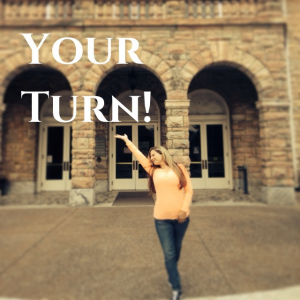 There are so many different angles and opinions on adoption. I want to know the feelings of the adoptees with less popular opinions. I happen to know an adoptee who, unlike most adoptees, has no interest in finding their bio family. I am grateful that this one answered questions for me so that maybe I can begin to understand why they don’t care to search while SO many of us do. This person has not read all of the countering arguments against adoption, privacy laws, etc… they don’t think about adoption ever because they doesn’t feel any negative effects from it. This adoptee is a male and the adoptees I’ve spoken to who aren’t interested in searching are usually males. I’d like to hear from more adoptees who don’t care to search because I’m curious if that’s mostly males or females. If you guys like this format, I will do more! Of course… that means I need adoptees who are willing to give a testimonial for less popular opinions! So please enjoy this perspective and remember that we are all different in our own beautiful ways so don’t judge. I do, however, encourage debate so please read and give your own opinions in the comments.
There are so many different angles and opinions on adoption. I want to know the feelings of the adoptees with less popular opinions. I happen to know an adoptee who, unlike most adoptees, has no interest in finding their bio family. I am grateful that this one answered questions for me so that maybe I can begin to understand why they don’t care to search while SO many of us do. This person has not read all of the countering arguments against adoption, privacy laws, etc… they don’t think about adoption ever because they doesn’t feel any negative effects from it. This adoptee is a male and the adoptees I’ve spoken to who aren’t interested in searching are usually males. I’d like to hear from more adoptees who don’t care to search because I’m curious if that’s mostly males or females. If you guys like this format, I will do more! Of course… that means I need adoptees who are willing to give a testimonial for less popular opinions! So please enjoy this perspective and remember that we are all different in our own beautiful ways so don’t judge. I do, however, encourage debate so please read and give your own opinions in the comments.
We gotta fight for our right!
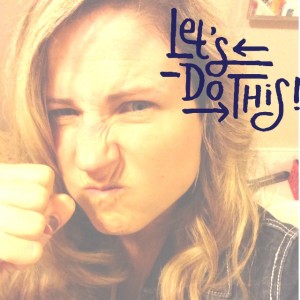 I think… I HOPE, there is a movement afoot for adoptees and first/birth mothers. I am seeing more articles and more news stories on TV about adoption. Social media is giving us the opportunity and medium to stand up and be heard. Momentum seems to be gathering and we need to keep it moving because this is about human rights. Adoptees are denied their identity due to antiquated laws developed from a warped culture of perceived shame and honor. It’s hard to believe that “society” was so uncaring and uneducated that they could shame families and young mothers into the situation of adoption and ripping babies from their mother’s arms ONLY because it supposedly brought shame to the family. If you stop and think about that, it is incredulous that our advanced country ever thought that was acceptable. I’m talking about the early to mid 1900’s when this was the culture and the laws that protected the birth mother’s identity by law. But I’m seeing change, only in a few states, but it is happening. Ohio just signed legislation to open their adoption records. This is momentum and an event that provides us a springboard to bring more awareness to adoptees’ human rights to their identity. We need to stand up together in our very large numbers and use this event to fight for more; we need the 47 other states to follow suit. I know I want to help. I will be contacting adoption activists to see what we can do to bring change but we need to present a unified front and be impossible to ignore!!! I’m going to be aggressive and relentless to get the Adoptees’ Rights Movement going so we ALL are given our original birth certificates. Stay tuned….
I think… I HOPE, there is a movement afoot for adoptees and first/birth mothers. I am seeing more articles and more news stories on TV about adoption. Social media is giving us the opportunity and medium to stand up and be heard. Momentum seems to be gathering and we need to keep it moving because this is about human rights. Adoptees are denied their identity due to antiquated laws developed from a warped culture of perceived shame and honor. It’s hard to believe that “society” was so uncaring and uneducated that they could shame families and young mothers into the situation of adoption and ripping babies from their mother’s arms ONLY because it supposedly brought shame to the family. If you stop and think about that, it is incredulous that our advanced country ever thought that was acceptable. I’m talking about the early to mid 1900’s when this was the culture and the laws that protected the birth mother’s identity by law. But I’m seeing change, only in a few states, but it is happening. Ohio just signed legislation to open their adoption records. This is momentum and an event that provides us a springboard to bring more awareness to adoptees’ human rights to their identity. We need to stand up together in our very large numbers and use this event to fight for more; we need the 47 other states to follow suit. I know I want to help. I will be contacting adoption activists to see what we can do to bring change but we need to present a unified front and be impossible to ignore!!! I’m going to be aggressive and relentless to get the Adoptees’ Rights Movement going so we ALL are given our original birth certificates. Stay tuned….
Switched At Birth… I’m fascinated!
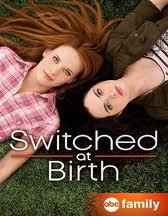 I’ve spent the last three days watching this show that was on ABC Family channel called “Switched at Birth”. I’m absolutely fascinated by the dynamics although I understand the “apple pie” way things are portrayed on TV. I think if you have spent a few minutes reading through some of my old blog posts you will know that I’m interested in the nature vs. nurture theories. This show really focuses on that and I love it! Of course, it is drama TV so it also focuses on the relationships and throws in curve balls like one family being very rich and the other… not so much. And then let’s make it even more dramatic and make one of the girls deaf! But they really seem to capture many of the issues experienced by adoptees, who do I look like, where did I get my tendencies and likes/dislikes, and then they even cover a reunion type of situation and ALL of the crazy situations that involves, including the parents’ feelings! I truly relate to this show and appreciate the care they took in covering all the angles. It is so interesting how one girl always felt different and that something wasn’t right and the other girl didn’t. After meeting both families it is clear how both girls handle all situations in a similar way to their biological mothers although they have many traits that they learned through their non-biological families. One thing always rings true to EVERY HUMAN BEING… we ALL want to know where we came from, who we came from and to know what makes us tick because knowing that brings an incredible understanding that is almost like unlocking the secrets of the universe! Even natural born people spend millions of dollars a year in therapy trying to figure that out. Adoptees are at a disadvantage from birth. Knowing your genetics and heritage is a HUMAN RIGHT. In the “switched at birth” scenario, it was recognized by law that their human right was to know who their biological parents were. Why should it be any different for an adoptee? I’m an advocate for human rights for all… what about you?
I’ve spent the last three days watching this show that was on ABC Family channel called “Switched at Birth”. I’m absolutely fascinated by the dynamics although I understand the “apple pie” way things are portrayed on TV. I think if you have spent a few minutes reading through some of my old blog posts you will know that I’m interested in the nature vs. nurture theories. This show really focuses on that and I love it! Of course, it is drama TV so it also focuses on the relationships and throws in curve balls like one family being very rich and the other… not so much. And then let’s make it even more dramatic and make one of the girls deaf! But they really seem to capture many of the issues experienced by adoptees, who do I look like, where did I get my tendencies and likes/dislikes, and then they even cover a reunion type of situation and ALL of the crazy situations that involves, including the parents’ feelings! I truly relate to this show and appreciate the care they took in covering all the angles. It is so interesting how one girl always felt different and that something wasn’t right and the other girl didn’t. After meeting both families it is clear how both girls handle all situations in a similar way to their biological mothers although they have many traits that they learned through their non-biological families. One thing always rings true to EVERY HUMAN BEING… we ALL want to know where we came from, who we came from and to know what makes us tick because knowing that brings an incredible understanding that is almost like unlocking the secrets of the universe! Even natural born people spend millions of dollars a year in therapy trying to figure that out. Adoptees are at a disadvantage from birth. Knowing your genetics and heritage is a HUMAN RIGHT. In the “switched at birth” scenario, it was recognized by law that their human right was to know who their biological parents were. Why should it be any different for an adoptee? I’m an advocate for human rights for all… what about you?
Is the power of suggestion real?
“But what can explain the powerful and pervasive effect that suggestion has in our lives? The answer lies in our ‘response expectancies,’ or the ways in which we anticipate our responses in various situations. These expectancies set us up for automatic responses that actively influence how we get to the outcome we expect. Once we anticipate a specific outcome will occur, our subsequent thoughts and behaviors will actually help to bring that outcome to fruition.”
